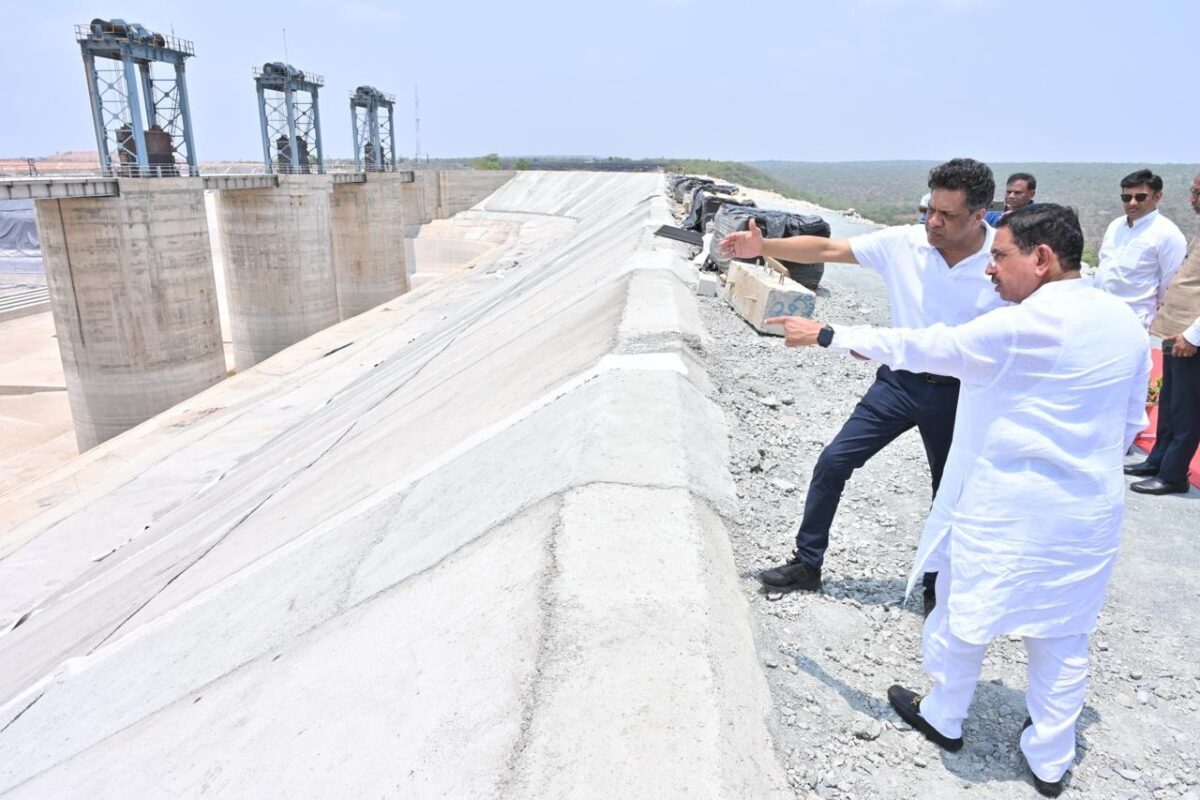The Indian state recently floated an around 28 MWp tender for the implementation of grid connected rooftop solar PV projects under the RESCO Model.
For the first time, this RESCO tender hosted an elaborated data room for bidders to address information asymmetry. As a part of India’s lead in the solar sector, the International Solar Alliance (ISA) held a live webcast of the tender’s pre-bid for all its member countries in June.
Manu Srivastava, Principal Secretary, New and Renewable Energy Department of Madhya Pradesh discusses both the tender and other solar initiatives undertaken by the Madhya Pradesh government.
pv magazine: Please share details of the recent 28 MWp rooftop solar tender by MPUVNL.
Manu Srivastava: The selected bidders have to undertake design, engineering, supply, installation, testing and commissioning along with comprehensive operation and maintenance for 25 operational years of these projects. A model power purchase agreement (PPA) is also being released along with the request for proposal (RfP), which has been pre-cleared by most of the power procurers.
The total capacity has been split into 22 project groups, with capacities in each group ranging from 50 kWp to 5.7 MWp; bidders can bid for one or multiple categories. The bidding criteria is the first year electricity tariff (INR/unit), which will be increased at 3% per annum from second year onwards till the end of 25-year term of the project.
To reduce the entry barrier, no technical criteria are put for eligibility, and net worth requirement has been kept at just INR 10 million/MW. Since under performance gets naturally penalized through reduced revenues, no operational performance guarantee is sought from the developers.
What are the buildings/sites selected, and on what basis? What is the plan for buildings that have small/shared roof areas, or fall under shaded areas?
The sites selected are mostly government buildings and some private institutions. MPUVNL aims to achieve 2.2 GW of solar rooftop projects in Madhya Pradesh (MP) by 2022. As a part of this mission, it has approached various state departments, central government institutions and private institutions, inviting their interest for installation of solar rooftop systems on their premises.
MPUVNL has conducted preliminary diligence of identified project sites by conducting site visits to determine the shadow-free area. The sites are large enough for solar rooftop installations. MPUVN has also assessed actual electricity requirement from the past electricity bills and site conditions. A first-of-its-kind data room has been created and tagged with tender documents for aiding the participating bidders and for addressing the problem of information asymmetry usually encountered in RESCO tenders.
The data room hosts information on site-specific technical assessment and electricity consumption history, etc. This provides detailed information of each site, including that of solar PV array layout superimposed on Google image, shadow on the building, expected requirement of panels, cable, etc., and electricity bills of the building. This exercise has been done with technical support from the World Bank.
The sites mentioned in the RESCO tender belong to the first batch of RESCO tenders. MPUVNL is continuously identifying more project sites and undertaking preliminary diligence. They will be included in subsequent batches of RESCO tenders in MP.
What are the subsidies and incentives available for project developers? Is there any payment security mechanism for them to secure the financial future of these projects? Any tie-ups with lending institutions for loans with special documents?
The institutional sector (government or private) in MP is entitled for a state government subsidy in addition to Ministry of New and Renewable Energy (MNRE) subsidy. Government of MP would provide the capital subsidy of 20%, which is over and above MNRE subsidy of 30% (for private institutions) and 25% (for government institutions). MPUVNL offers half of such subsidy as mobilization advance against bank guarantee to facilitate easy cash flow. Remaining subsidy is paid once the project starts commercial operation. Despite RESCO mode, the developer would enjoy upfront recovery of almost half of the capital investment.
MPUVNL has grouped its projects, based on the profile of ultimate paying entity, viz, central government department/state government and nature of end-use, thereby minimizing the payment risk. The procurer will provide the RESCO project developer with Letter of Credit/Bank Guarantee/Fixed Deposit/Departmental Guarantee/Assurance as payment security mechanism, based on the profile of the procurer. This will facilitate the developer with large size and uniform credit profile of the procurers.
For commercial and industrial sector consumers, World Bank has stapled its highly concessional line of lending for the winning contractor through SBI at around 8.5% per annum, which is approximately 4% less than the commercial lending rate of SBI which is about 12.5%. Similarly, Asian Development Bank is providing loan through Punjab National Bank at around the same rates. These are subject to diligence on borrower entity on the criteria already annexed with the tender document. The concessional finance to the winning contractor is expected to substantially reduce the rate at which power would be available to commercial and industrial sector consumers under this RESCO tender.
What steps have been taken to enable smooth implementation of the projects?
Smooth implementation of RESCO projects is driven by four factors: market creation; project sizing; bankable transaction document; and timely execution. MPUVNL has ensured that each of them falls in right place for its RESCO programme.
Market creation refers to identifying potential procurers who have sufficient electricity demand, as well as suitable space within their premise for solar rooftop installations. Such consumers are not many, and educating them for the terms of PPA is a big challenge. MPUVNL has identified more than 550 such project sites for its RESCO programme through its groundwork spread over almost 12 months. Since such market is already created, the project developers need not worry for the demand creation, and can focus on faster and efficient implementation of their projects.
Once such customers are identified, estimating project size for solar rooftop is the next big challenge, due to paucity of data/information asymmetry. Prudent estimation of rooftop capacity requires access to sufficient information. As mentioned earlier, MPUVNL has created a data room that hosts site-specific information. Further, the selected RESCO developers would prepare detailed project report for each project site with more accurate project sizing. Several project sites are grouped into various project groups. Such grouping allows economy of scale in procurement of plant and machinery, reduced administrative overhead and efficient financing. This will reduce the risk profile of the projects, and enable more informed participation by the bidders.
Several challenges affect bankability of RESCO projects. RESCO tender has addressed them by defining proper billing point, allowing part commissioning, providing for deemed generation, payment security mechanism, payment for early termination, putting in place seasonally indexed performance monitoring, etc. Most importantly, beneficiary consumers have pre-cleared the terms of PPA and they are ready to execute the PPAs with winning bidders.
The selected bidders have to achieve commercial operation date (COD) within nine months of signing the PPA. In case of delay in commissioning, liquidated damages (LDs) would be imposed up to a maximum of 20 weeks. For fulfilling subsequent conditions, there are intermediary milestones to be complied to avoid LD. MPUVNL will oversee that these projects are implemented smoothly and within the defined timelines.
RESCO model too comes with its own set of challenges. Please elaborate on ways to overcome these.
Some of the typical challenges have been addressed in the manner just described above.
Generally, the risk of PPA’s premature termination remains unaddressed and poses big challenge for the bankability. MPUVNL does not permit any termination (pre-mature) before completing five operational years; also higher termination payment has been kept to reduce the chances of termination even after five years. RESCO developer would be compensated in the event of early termination, which can be triggered by the event of default by either developer or procurer, or without any such default if the procurer wishes to terminate early. Such compensation takes care of debt liability of the project and encourages the contractual performance by both the parties.
MPUVNL allows part commissioning of the projects to help developers to start monetizing their assets sooner.
RESCO tender puts in place seasonally indexed performance monitoring mechanism. This ensures that beneficiary consumers are fairly provided with assured generation from rooftop projects. This also ensures that the government’s funds paid as subsidies are optimally utilized through proper functioning projects.
By when will the project be commissioned?
PPA has to be signed within three months of selecting successful RESCO bidders. The projects shall be commissioned within nine months post that.
Are there any other important details you would like to share with us?
Recently, a delegation from International Solar Alliance (ISA) with national focal points from 13 member countries visited MP. They were excited to know various initiatives the state government is taking in innovatively building bankable and efficient programmes in renewable energy. As a part of India’s lead in solar sector, ISA has done live webcast of pre-bid of this RESCO tender for all its member countries on June 22, 2018.
This content is protected by copyright and may not be reused. If you want to cooperate with us and would like to reuse some of our content, please contact: editors@pv-magazine.com.









Great efforts by Manu Shrivasta
Great leadership